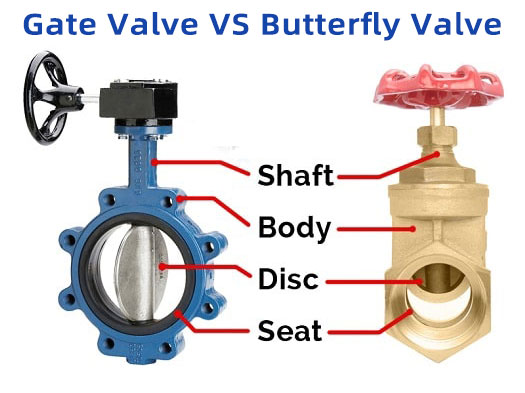
- Call Us
- +8618633052223
- njhdvlz@163.com
Nov . 17, 2024 13:19 Back to list
carbon steel check valve factory
The Role of Carbon Steel Check Valves in Industrial Applications
Carbon steel check valves are critical components in various industrial systems, providing essential functions in maintaining system integrity and efficiency. These valves are designed to allow fluid or gas to flow in one direction while preventing backflow, making them indispensable in a wide range of applications such as water treatment, oil and gas, chemical processing, and HVAC systems. This article explores the significance of carbon steel check valves, their manufacturing processes, advantages, and applications.
Understanding Carbon Steel Check Valves
Check valves, also known as non-return valves, work automatically to ensure fluid flows in the desired direction. Their design consists of a body, a disc, and a seat. When the fluid flows in the correct direction, it pushes the disc open. If there is any attempt for fluid to flow backward, the disc is forced against the seat, thus sealing the opening and preventing backflow. The materials used in the manufacturing of check valves significantly affect their performance, durability, and resistance to corrosion.
Carbon steel is a popular material for check valves due to its strength, durability, and cost-effectiveness. It contains varying amounts of carbon, which enhances its hardness and tensile strength. While carbon steel valves may not be as corrosion-resistant as stainless steel options, they are typically suitable for many applications where moisture and chemical exposure are not significant concerns.
Manufacturing Process of Carbon Steel Check Valves
The manufacturing process of carbon steel check valves typically involves several key steps
1. Material Selection The first step is to select the appropriate grade of carbon steel. Different grades offer various properties in terms of strength, ductility, and weldability.
2. Casting or Machining Depending on the design specifications, carbon steel can either be cast into the desired shape or machined from solid blocks. Casting can be more cost-effective for larger valves, while machining provides higher precision.
3. Heat Treatment Post-fabrication, the valves may undergo heat treatment to improve hardness and strength. This step is critical to ensure the valves can withstand high-pressure environments.
4. Surface Treatment To enhance corrosion resistance, valves are often coated or treated with anti-corrosive materials, especially if they are expected to be exposed to harsh environments.
5. Testing and Quality Control Each valve undergoes rigorous testing to check for leaks, ensure proper functioning, and confirm that they meet industry standards such as ASME, API, or ISO certifications.
carbon steel check valve factory

Advantages of Carbon Steel Check Valves
Carbon steel check valves offer several advantages
- Cost-Effectiveness Compared to other materials such as stainless steel, carbon steel check valves are generally more affordable, making them a popular choice for budget-conscious projects. - High Strength and Durability These valves can handle high pressure and are suitable for various applications, providing a long service life with minimal maintenance.
- Versatility Carbon steel check valves can be used in diverse applications across different industries, from plumbing installations to heavy industrial equipment.
- Ease of Installation Designed for straightforward installation, carbon steel check valves can easily integrate into existing systems, reducing overall downtimes during refurbishment or upgrades.
Applications of Carbon Steel Check Valves
Carbon steel check valves find applications in numerous sectors, including
- Water and Wastewater Management They regulate flow in treatment plants and sewage systems, preventing backflow that could contaminate clean water supplies.
- Oil and Gas Industry Check valves are essential in pipelines transporting crude oil and natural gas, ensuring safety and efficiency by preventing backflow and potential leaks.
- Chemical Processing In chemical manufacturing, check valves are critical for maintaining pressure and preventing cross-contamination between different processes.
- HVAC Systems Heating, ventilation, and air conditioning systems utilize check valves to regulate airflow and maintain pressure balance throughout the system.
In conclusion, carbon steel check valves are vital assets across various industries due to their reliability, strength, and economic advantages. Their ability to prevent backflow makes them essential for maintaining system efficiency and safety. As industries continue to grow and evolve, the demand for high-quality carbon steel check valves will undeniably remain significant, ensuring their place at the forefront of industrial technology.
-
Stainless Steel Sanitary Butterfly Valve | Hygienic & Durable
NewsAug.02,2025
-
Double Flanged Short Pattern Butterfly Valve | Compact, Efficient Flow
NewsAug.01,2025
-
Precise 3-Inch Butterfly Valve Dimensions | Durable Flow
NewsJul.31,2025
-
3 Butterfly Valve Dimensions | GPT-4 Turbo Precision Specs
NewsJul.31,2025
-
Stainless Steel Sanitary Butterfly Valve for Hygienic Flow Control
NewsJul.30,2025
-
High-Performance Groove Butterfly Valve for Easy Installation
NewsJul.30,2025